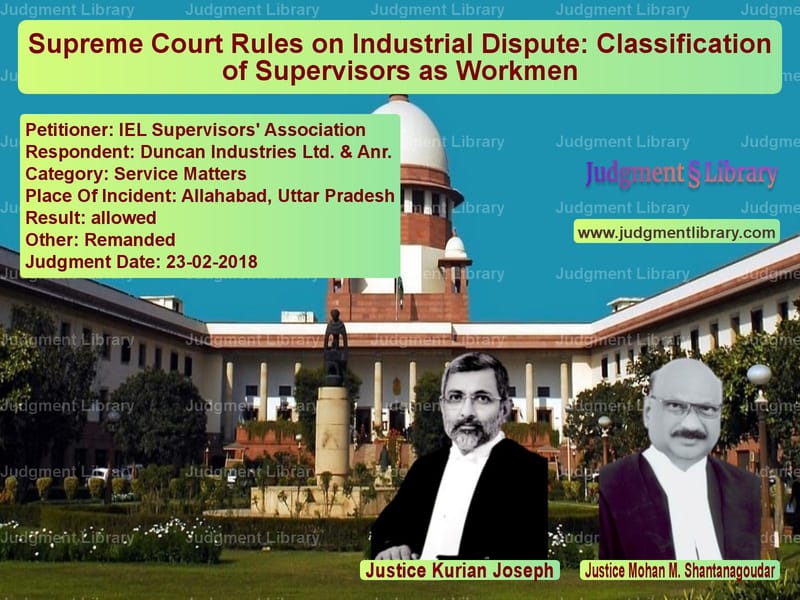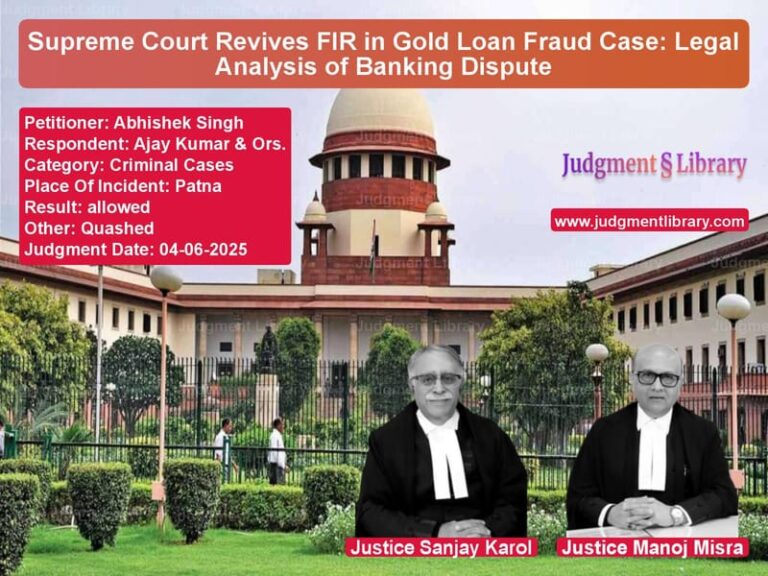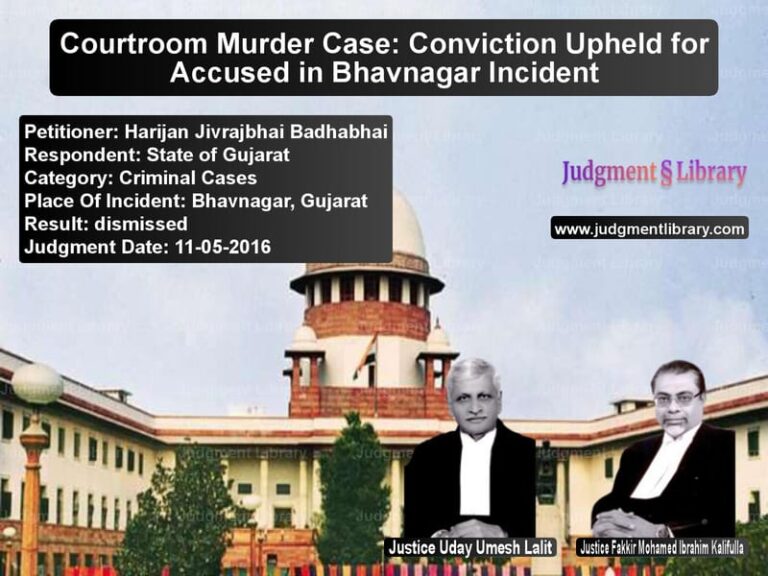Supreme Court Rules on Industrial Dispute: Classification of Supervisors as Workmen
The legal battle concerning the employment classification of Supervisors and Deputy Superintendents at Duncan Industries Ltd. has finally been resolved by the Supreme Court of India. The key issue in the case was whether these employees should be classified as ‘workmen’ under the Industrial Disputes Act, 1947. The dispute had been ongoing for years, with conflicting rulings from various labor courts leading to prolonged litigation.
The Supreme Court, in its final ruling on February 23, 2018, set aside the High Court’s order to remand the matter for fresh adjudication. Instead, the Court directed the High Court to resolve the issue based on the existing records. This landmark judgment is expected to influence future cases concerning labor classification and employment rights.
Background of the Case
The dispute originated from differences in opinion among labor courts regarding the status of Supervisors and Deputy Superintendents at Duncan Industries Ltd. According to the Industrial Disputes Act, 1947, an individual classified as a ‘workman’ is entitled to certain protections and benefits. The conflict arose when two different labor courts arrived at opposite conclusions on whether the supervisors qualified as workmen under the Act.
Given the contradictory rulings, the matter was escalated to the High Court of Allahabad. The High Court, instead of making a determination, remitted the case back to the Industrial Tribunal for fresh adjudication. This decision was challenged by the appellants, IEL Supervisors’ Association, before the Supreme Court.
Legal Arguments
Petitioners’ Arguments (IEL Supervisors’ Association)
The petitioners, through their senior counsel, presented the following arguments:
- The matter had already been remanded once by the Supreme Court in its order dated September 14, 2010, and further remanding was unjustified.
- Conflicting rulings from different labor courts had caused uncertainty and affected the rights of the employees.
- The High Court had the authority to settle the dispute based on available records rather than subjecting the employees to further delays.
- The prolonged litigation was negatively impacting the financial and professional security of the affected employees.
Respondents’ Arguments (Duncan Industries Ltd.)
The company, represented by its legal counsel, countered with the following points:
- The classification of supervisors as workmen had far-reaching implications for company policies and labor management.
- Since the company had changed management after the 2010 Supreme Court order, fresh adjudication was necessary.
- The new management needed an opportunity to present its position on the issue.
Supreme Court’s Judgment
The Supreme Court ruled in favor of the petitioners and overturned the High Court’s decision to remit the matter to the Industrial Tribunal. The Court stated:
‘The only dispute remaining to be decided is whether the Supervisors/Deputy Superintendents would be workmen or not. There are already two conflicting views of the Labor Courts. In the above circumstances, we do not find any justification for the High Court remitting the matter again to the Labor Court on the issue.’
The Supreme Court emphasized that the case had already been subjected to multiple reviews and remands, causing unnecessary delays. It directed the High Court to settle the dispute based on the available records instead of prolonging the litigation further.
Implications of the Judgment
For Employees
- The ruling provides clarity on the classification of Supervisors and Deputy Superintendents under the Industrial Disputes Act.
- It protects employees from indefinite delays in labor disputes by preventing excessive remands.
- It reinforces the importance of timely resolution in industrial disputes.
For Employers
- The judgment emphasizes that employment classification must be handled systematically and cannot be subjected to indefinite litigation.
- It allows employers to plan their workforce and employee benefits with greater clarity.
- The ruling discourages conflicting decisions from different labor courts, ensuring consistency in industrial dispute resolution.
Key Takeaways
- The Supreme Court has set a precedent against unnecessary remands in labor disputes.
- Employment classification must be based on clear legal parameters rather than subjective interpretations.
- The ruling ensures a more streamlined dispute resolution process under the Industrial Disputes Act, 1947.
Conclusion
The Supreme Court’s decision in IEL Supervisors’ Association vs. Duncan Industries Ltd. marks the end of a prolonged legal battle over employment classification. By setting aside the High Court’s order and directing a final decision based on existing records, the Court has reinforced the importance of judicial efficiency in labor disputes.
This ruling is expected to have significant implications for similar cases in the future, ensuring that employees and employers alike receive timely and fair resolutions in industrial disputes.
Petitioner Name: IEL Supervisors’ AssociationRespondent Name: Duncan Industries Ltd. & Anr.Judgment By: Justice Kurian Joseph, Justice Mohan M. ShantanagoudarJudgment Date: 23-02-2018
Don’t miss out on the full details! Download the complete judgment in PDF format below and gain valuable insights instantly!
Download Judgment: IEL Supervisors’ Ass vs Duncan Industries Lt Supreme Court of India Judgment Dated 23-02-2018.pdf
Direct Downlaod Judgment: Direct downlaod this Judgment
See all petitions in Employment Disputes
See all petitions in Workplace Harassment
See all petitions in Disciplinary Proceedings
See all petitions in Judgment by Kurian Joseph
See all petitions in Judgment by Mohan M. Shantanagoudar
See all petitions in allowed
See all petitions in Remanded
See all petitions in supreme court of India judgments February 2018
See all petitions in 2018 judgments
See all posts in Service Matters Category
See all allowed petitions in Service Matters Category
See all Dismissed petitions in Service Matters Category
See all partially allowed petitions in Service Matters Category







